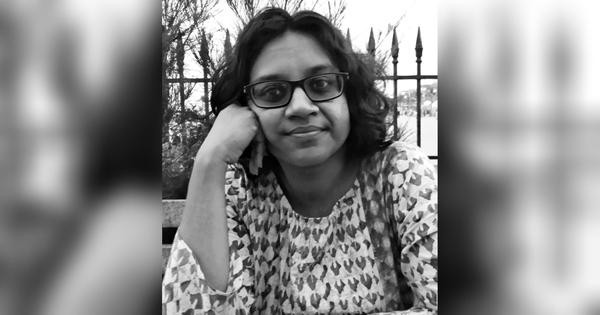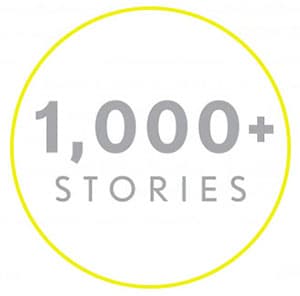
Last year Urbi Bhaduri decided to take a risk. She had always loved writing and had a desire to pursue it, but always found some reason to put off following her dream. Then a few months into the COVID-19 pandemic she found herself reevaluating her life, her goals and her work – was she really going to continue to defer her dream? And so Maps for Lost Writers was born. A sort of wayfinding coaching for writers and aspiring writers, helping them find their voice, their motivation and their game plan for writing. Today Bhaduri is coaching clients via Zoom and keeping her prices low so creatives can get the help they need without breaking the bank.
Bhaduri’s story, as told to The Story Exchange 1,000+ Stories Project:
At the beginning of the pandemic, during a heart-to-heart with a friend on the subject of livelihood and its connection with our perceived calling, I recalled a question posed by Langston Hughes in his poem “Harlem.” He had asked, “What happens to a dream deferred?” This became my question too.
I felt this deep ache in my bones as I recalled how long I had been carrying this particularly important dream of mine without showing up fully for it, without letting my voice be clear and audible, without risking something. I was tired of waiting — for the right container, the right people, the right time. There was an urgent need to actually start practicing my dream, before it became a burden. And so, this is what it is — an experimental container to practice our dreams together. My intention is to help people listen in and hold themselves in kindness while saying a wholehearted yes to their dream.
I offer deep listening, encouragement and wayfinding through one-on-one conversations with people who long to express themselves through writing. The people I work with may or may not think of themselves as ‘writers.’ They may not know what to write, or how to even begin to work with their longing. For some, even the thought of writing may bring up a sense of deep inadequacy and shame. What they do know, however, is that the call is urgent and compelling, that writing is in some way deeply connected with their very identity and purpose, and not to heed the call feels like some sort of betrayal.
The sessions take place over hourlong, one-on-one Zoom calls. The first session can be a standalone session. The subject is fluid and depends on what the individual needs. We could work on understanding the kinds of writing that would bring them joy and healing. Explore ways of working through the obstacles blocking their path. Create a rough roadmap. Brainstorm ways in which they can start to support themselves financially through writing. Or just let themselves and their journeys be witnessed and understood by a fellow human who struggles with all of these things.
[Related: She Ditched Her Day Job and Decided to Follow Her Passion Full Time]
Process sessions involve conversations, reflections and ideations on the writing process. Apart from fostering creative mindsets, these also help to make a beginning, make progress and have accountability. Product sessions involve working together hands-on to edit, analyze and understand the strengths and limitations of particular pieces of their writing. We work with aspects such as language and craft and on understanding the universal principles of what really makes a story.
Success is helping people feel seen, heard, understood and guided at a very human level. Facilitating the journey from being “lost” to creating a map together to reach their goals. Instilling confidence and a sense of safety by being present, really present to these conversation between equals, between two writers and two human beings. Success is when a lost writer starts finding a way to answer their calling to write.
[Related: Meena Harris, Like Her VP Aunt, Wants Girls to Own Their Ambition]
To date, I have perceived each of my conversations as a personal success. Each has been infused with a sense of hope, love and possibility, of being empowered enough to actually start working. Very early in the process, a national publication reached out to me and asked me to write about my work with “Maps for Lost Writers” in a highly-regarded series they were curating, themed “Publishing and the Pandemic.” This was also a great success early on.
An important question has been about how to make these conversations accessible to people who may really benefit, but may not have the financial means to pay for it. This is why (also taking into consideration the pandemic) I have kept my work very affordable. I’m also considering creating a fund so as to be able to offer a limited number of need-based scholarships.
I cannot think of one person in terms of a role model. But it would be a woman who is kind, brave, speaks up, and works towards her dream even in the face of challenge.
Share your story!
Check out our Advice + Tips for entrepreneurs starting-up
Watch our latest videos
Subscribe to our podcast


